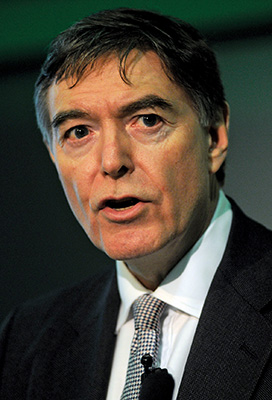MiP Conference: “Let’s reset the rhetoric about NHS managers”

Speaking to MiP Conference in his first public speech as health minister, Philip Dunne promised to “reset” the political rhetoric about NHS managers, improve workplace culture and tackle bullying in the NHS.
Dunne said he recognised there was a stigma attached to NHS management, which was too often seen as “the dark side” by clinicians.
“I think we do need to reset the dialogue a bit here, reset the rhetoric,” he told delegates. “I don’t personally subscribe to the view that a manager is bad and a doctor is good.”
Dunne said it was “bizarre” that the NHS recruited so few graduate trainees. “We need to act now to improve the pipeline of leadership talent and support leaders if we are to protect health and social care for the future. I see this as a key priority for my time in the Department of Health.”
Tackling bullying
He warned that bullying was a shared, complex and pressing problem which impacted directly on patient care. “That’s why I think it’s so important and why it’s such a priority for me. It’s essential to tackle not only the pathology of bullying itself but also how organisations might create the positive cultures within which bullying no longer happens.”
Dunne also promised “to apply some pressure” to ensure mental health services were given “parity of esteem” in the NHS. “I think it’s right that we’re held to account for our rhetoric on this – it’s been a clear commitment of the new prime minister,” he said.
Related News
-

MiP responds to the abolition of NHS England
Government risk repeating same mistakes as Lansley by abolishing NHS England and cutting more staff from ICBs, says MiP.
-

NHS England and central staff could be cut by 50%, NHSE has announced
Government planned cuts at NHS England go much further than previously announced, with up to 50% of staff at risk.
-

New MiP survey shows growing support for principle of regulating managers, but warns it won’t improve patient safety
MiP’s member survey on regulating NHS managers shows managers are still not convinced regulation will improve patient safety or raise standards, despite growing support for it in principle.